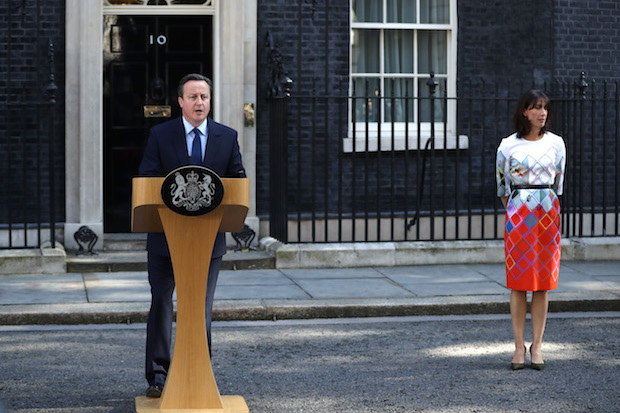As was the case with Donald Trump clinching the GOP nomination despite the deep disbelief of the American professional class, it seems Brexit’s success blindsided UK pundits and betting houses because few in positions of power and privilege could fully wrap their heads around such a self-immolating move. The question remains: How many Brexit supporters (and Trump ones) don’t comprehend the economic ramifications of anti-immigration policies and how many do know and simply don’t care?
Clive Crook of Bloomberg View has an excellent and sober-minded Reddit AMA about Brexit and its aftermath. A few exchanges follow.
Question:
Can you please give a general outline on the history behind this referendum? Why was this referendum even held at all? I see a lot of references to “Cameron’s gamble”; why did he feel he needed to gamble?
Clive Crook:
Cameron promised a referendum partly (his critics say entirely) to stifle dissent in the Conservative Party, so that they could unify and win the last general election. It worked — except, as you notice, for one thing! He underestimated the country’s disaffection with the EU (outside London anyway) and then, I think, fought a not very good campaign to Remain, overdoing “Project Fear”. The EU could have done a lot more to help him win, by the way. They saw him as a nuisance, not as an ally. Plenty of blame to go around.
Question:
How embedded is misinformation in 21st century politics?
Clive Crook:
Deeply! For sure. But I think it’s wrong to cast the breakdowns we see all around us as nothing more than the high-information elite vs the low-information rabble. What we’re seeing in Britain, in the rest of Europe, and in the US too, is a popular revolt against the elites. This is very dangerous — but it’s intelligible and not entirely without justification. I think it’s really important to keep that in mind.
Question:
Why were the betting houses so wrong?
Clive Crook:
That’s puzzling. The polls all through showed a close race. In the past few days, Leave moved ahead according to several polls. Yet the pollsters and the betting markets discounted the data — in the pollsters’ case, their own data. Not sure why. Like most people I thought undecideds would divide disproportionately in favor of Remain — the safe choice — but that didn’t happen.
Question:
What will be the first major crisis that common people in the UK will ‘feel’?
Clive Crook:
The next few days may qualify. Extreme financial-market turbulence can be dismissed as the City’s problem for a short while — but not if the govt and bank of England have to undertake emergency measures to stem the panic. Later, the big risk is collapsing inward investment.
Question:
Will Britain realistically be able to have more control over immigration independent of the EU?
Clive Crook:
I’m sure it would have more control. But you’re right to wonder whether it would like the results. Immigration has been a big net benefit to the UK.
Question:
Is this evidence that globalism has failed? Is the psychology of “diversity” just too difficult for people too manage?
Clive Crook:
Maybe. But I don’t know if it’s diversity so much. Partly, I guess. But the key trade-offs, I think, are: (1) benefits of globalization (higher living standards in the aggregate) vs costs (displaced workers), and (2) economic integration (net benefit) vs political integration (diminished self-government). Brexit is all about (2).

